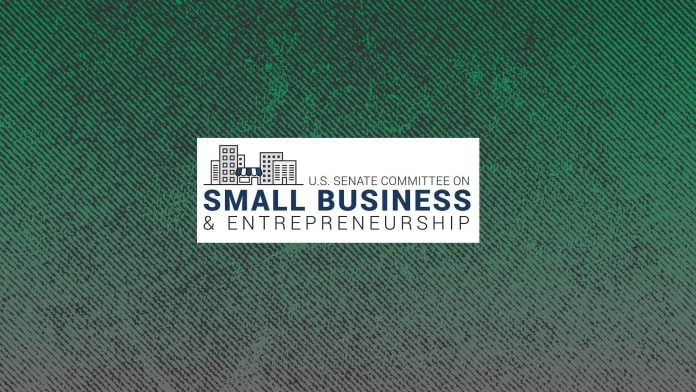Senator Joni Ernst, Chair of the U.S. Senate Committee on Small Business and Entrepreneurship, recently shed light on the significant benefits for small business owners stemming from the Trump administration’s regulatory rollback, which has reached a remarkable $907 billion. During a hearing in Washington, Ernst emphasized the urgent need for Congress to continue alleviating the regulatory burdens placed on small businesses under the Biden administration.
In her opening remarks, Ernst shared her firsthand experiences from traveling across Iowa, relaying the concerns small business owners have voiced regarding the weight of federal regulations. “For a small business, regulatory compliance is more than just a headache. It’s wasted time and money they’d rather put back into their businesses,” she noted, underscoring how overregulation stifles entrepreneurial energy.
The senator pointed out that the Biden administration’s tenure saw an astronomical addition of 107,262 pages of rules to the Federal Register. This avalanche of regulations potentially cost small businesses an estimated $1.8 trillion and demanded a staggering 256 million hours of paperwork. Ernst starkly contrasted this with the prior administration’s efforts, stating that regulatory costs during Biden’s term were more than 15 times higher than those incurred under Trump’s first administration.
Key benefits of the regulatory rollback, according to Ernst, include significant time and cost savings for small business owners, allowing them to reallocate resources towards growth and job creation. “The massive mountain of paperwork hours due to bureaucratic red tape cuts into small businesses’ bottom lines, it slows job creation, and balloons compliance costs. It’s simply bad for business,” said Ernst.
A focal point of her agenda is the introduction of two pivotal pieces of legislation designed to boost small business voices in Washington. The Prove It Act aims to require regulatory agencies to consider both direct and indirect costs on small businesses before finalizing any rules. Additionally, it mandates that federal agencies provide formal reviews of their regulations, ensuring transparency and accountability. The Red Tape Act seeks to expose the true costs of federal regulations while dismantling opaquely conceived strategies that have obscured financial impacts.
Ernst passionately stated, “It has been a personal mission of mine to end the red-tape nightmare that has tormented our small business owners.” By advocating for these measures, she believes the balance of power can shift back in favor of small enterprises rather than the sprawling federal bureaucracy. Small business owners, who often lack the resources found in larger corporations, stand to gain immensely from this support.
Yet, small business owners should remain aware of potential challenges as they embrace these changes. The continued push for deregulation can lead to regulatory uncertainty that may complicate compliance for businesses transitioning from stringent regulations. Additionally, the rapid rollback of rules could spark pushback from advocacy groups worried about potential consequences for public health and safety.
Despite these complexities, the call for improved regulatory frameworks has resonated with many in the small business community. Ernst emphasized that the Trump administration’s regulatory savings, which she estimates may grow further, are critical for small business recovery post-pandemic. She is hopeful that the collaborative efforts with the Office of Advocacy and other stakeholders will result in a more manageable regulatory landscape for entrepreneurs.
As small business owners look to navigate this evolving landscape, they are encouraged to engage with the regulatory processes affecting their operations. The proposed legislation and the deregulatory actions from this administration could pave the way for a more favorable business climate, nurturing innovation and growth within local economies.
The ongoing discussions in Washington reflect a broader understanding of the challenges small businesses face and a commitment from some lawmakers to reshape these hurdles into stepping stones for prosperity. For additional details on the hearing and Senator Ernst’s remarks, you can read the full press release here.
Image Via BizSugar



